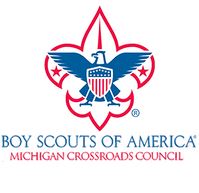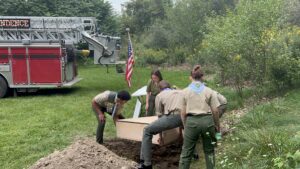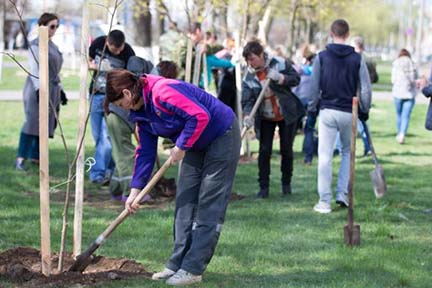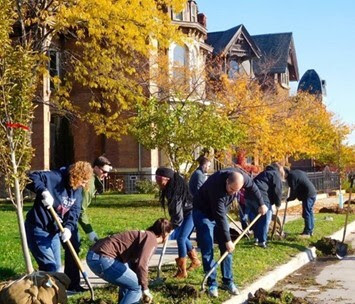
by Becky Andrus | Aug 21, 2023 | Feature Writers, High School Sports
Written Monday August 14th at 6:00 PM

This is the 2023 Football Preview. This will be updated with various podcasts and information from Media Day along with our special podcast with Civic Center TV’s Tyler Kieft and MIPrepZone’s Scott Burnstein.
ONTV News Media Day-Report
https://www.youtube.com/watch?v=KpC83I_1MZg
Podcast
https://www.youtube.com/watch?v=ZPxPxsHa_l0
Blue Division Preview
https://www.youtube.com/watch?v=ltML9TGn5Vk
AROUND THE OAA TOP 10
- West Bloomfield
- Southfield Arts and Tech
- Lake Orion
- Harper Woods
- Clarkston
- Adams
- Groves
- Seaholm
- Ferndale
- Avondale
DIVISION RECAP/STORYLINES:
MANAGEABLE SCHEDULE: Troy: The Colts schedule has been really criticized the last few years but they have found a way to make the postseason. The schedule is still not tough enough. Troy has a non conference schedule where they are playing teams that went a combined 8-37 last season. They have Macomb L’Anse Creuse North (3-6), Detroit Mumford (1-8), Berkley (2-7), Royal Oak (1-8), and Fraser (1-8) for their non conference. The Colts have most of their tough opponents with the exception of Troy Athens and Oak Park coming to Troy. The schedule makers gave the Colts a ton of favors but can it be enough to get them in the postseason is the question???
NIGHTMARE SCHEDULE: Oak Park: The Knights are used to playing brutal schedules and this season is no different. They have Detroit University-Detroit Jesuit, Oxford, and West Bloomfield for their non conference along with road trips to Dick Bye Field, Ron Holland Field, and the Maple Forest. Oak Park is in a new division but the schedule didn’t give them a break.
TEAM THAT’S ON THE RISE: Seaholm: The Maples have the talent for a deep postseason run and the proven playmakers. The lines are a question mark. The schedule looks daunting with four of their first five games on the road but they close out the season with three home games including their arch rival Groves where they have not fared well against. Things are looking up for Coach Jim DeWald’s team and Seaholm.
TEAM THAT’S IN TROUBLE: North Farmington: It was a disaster for the Raiders last season with injuries and inexperience. Coach Jon Herstein needs to address depth and program strength in a big way. The schedule makers didn’t do them any favors. North Farmington has Groves and Bloomfield Hills along with a trips to Caledonia and Oxford which are never fun along with road games at the Maple Forest and Don Colt Stadium to boot is never easy. The Raiders have a ton of work ahead of them if they want to forget about last season in a big way.
SEAHOLM MAPLES:
LAST SEASON RECORD: 8-3 (7-2), 3-1 Blue. Lost 26-12 to Groves in District Finals.
POINTS SCORED: 380 (34.5 ppg)
POINTS AGAINST: 177 (16 ppg)
KEY PLAYER: Colton Kinnie-Quarterback.
STRENGTH: Quarterback, Proven Rushing Attack, Proven Playmakers.
WEAKNESS: Proven Linemen, Depth.
GAME OF THE YEAR: September 1 at Detroit University-Detroit Jesuit.
PROJECTED RECORD: 8-1, 4-0 Blue
STORYLINES AND PLAYERS TO WATCH:
The Maples have had a ton of success as of late my making the postseason four of the last five years with a lot of credit going to Coach Jim DeWald’s veer attack which had put over 300 points in three of the last five years. Seaholm has had some issues against their crosstown rivals. Seaholm has lost 12 of the last 14 meetings including three postseason meetings to Groves. If the Maples want to change this, they need to start winning games against the arch rival on a consistent basis. “Coach Flaherty does a good job, really well coached. I imagine their offseason is just as good as ours, I know he’s got a good coaching staff. I know they work hard and it’s really really frustrating watching kids that belong at our school who at their school and scoring against us so they got our number, we got to beat them and they are doing a really good job beating us right now” said DeWald.
Seaholm has a ton of two way players which means a ton of playing time but concerns with attrition. The offense was very good for Maples last season. Seaholm was 7-0 but the loss to Farmington really changed things and they went 1-3 in their last four games. The Maples have proven athletes in Colton Kinnie coming back at quarterback.”They are extremely smart football players, fun to coach, like having a coach on the field” DeWald said of the Kinnie brothers. They have Sean Emerson at running back while Kyle Robbins and Jack Lewis are at wide receiver coming back. The offensive and defensive linemen will be a major concern for DeWald and the Maples this season despite having Luke Thurstwell, Blake Baldner, Andrew Fedor, and Akram Elsharnoby coming back “We lost a lot up front, I’m not going to lie from last year so we’ll have our work cut out for us to fill those positions out. The defense should be solid even though depth could be a major challenge as mentioned. Seaholm has Granden Kinnie, Penn Roberts, and Luke Johnson at linebacker along with Robbins, Emerson, and Lewis in the defensive secondary. If the numbers come back up for the Maples then they should be a team to watch.
Program strength is a concern for DeWald along with proven linemen and depth this season but talking to DeWald he’s very optimistic when it came to program strength.”I think our offseason has been great, its been second to none, it depends how much kids we get, some choose to come here while some get recruited out of here, our kids work very hard, they are accountable, truth is we get kids that get recruited out of here, that’s a fact” DeWald said. The schedule is very interesting. Seaholm has Detroit University-Detroit Jesuit, Berkley, Troy, and Troy Athens on the road. They have North Farmington, Bloomfield Hills, Avondale, Oak Park, and Groves coming to the Maple Forest. If DeWald can find proven linemen with the Maples then Seaholm should be fine going forward.
Seaholm Podcast
https://www.youtube.com/watch?v=SQCCjxxPYu4&t=657s
NORTH FARMINGTON RAIDERS:
LAST SEASON RECORD: 2-7, 2-2 Blue. Didn’t Make Postseason.
POINTS SCORED: 171 (19 ppg)
POINTS AGAINST: 268 (29.7 ppg)
KEY PLAYER: Ryan Shelby-Quarterback.
STRENGTH: Quarterback, Proven Wide Receivers.
WEAKNESS: Rushing Attack, Defensive Secondary, Depth, Program Strength.
GAME OF THE YEAR: September 16 at Seaholm
PROJECTED RECORD: 5-4, 3-1 Blue
STORYLINES AND PLAYERS TO WATCH:
It was a very tough season for the Raiders which saw a ton of injuries especially to quarterback Ryan Shelby. North Farmington really struggled with depth and program strength which are still going to be areas of concern for them this season. North Farmington is 5-13 since 2021 which is un Raider like. They made the postseason the last two years when Coach Jon Herstein arrived from Harrison in 2019. “We lost some kids coming out with COVID, two years ago I thought we were a pretty good team with a pretty tough schedule. The OAA can be super difficult, we took Adams to overtime, lost to West Bloomfield. We lost a lot of close games, we haven’t been able to find a way to finish, we were a very young football team” said Herstein.
The Raiders were decimated by injuries last season. They lost Will Coleman who transferred to Grand Rapids Catholic Central this offseason. North Farmington has Shelby at quarterback coming back. “He’s been fantastic, he torn his ACL last year Ryan with the rehab, he made a really quick recovery to the point where the doctors had cold feet and he wasn’t able to be cleared until the time he thought it was so it was a back and fourth he would but credit the kid, he did everything to get back out there last year and this year between football and baseball and the training he’s done a phenomenal job getting into shape, strengthening his knee and being a leader for our team” Herstein added. They have proven pass catchers in Prentice Gardner and TJ Alexander coming back. “PJ (Gardner) is third year playing football you know back to the inexperience part, he was on varsity the last three years and has done a good job learning the game and developing, really phenomenal athlete, all state long jumper, you know 22 feet or so and really great athlete, has good hands, excited to see how he can really come into his own this season and take control of the offense and play multiple positions” Herstein added. Herstein mentioned that Robert Brydges could be another impact player to watch. “Robert Brydges was a split end last year, did a good job and played defensive end, he’s really grown up” Herstein mentioned. All three could see time in the defensive secondary as well with the depth issues. The offensive and defensive lines should be solid with Brendon Rice and Willie Harrison coming back. “Brendan Rice, he’s probably the one that gets the most publicity of our team, he will be a junior, he’ll play O-Line/D-Line. This will be his third year on varsity, he played for us as a freshmen on varsity, starting to really develop the game, develop his knowledge of the game, he’s always been a good student but just kind of trusting himself and having confidence in what he does. He has done a good job this offseason, did a really great job actually but this would be kind of a coming out year for him and I’m excited” Herstein said of Rice. The rest of defense should be the question mark for Herstein despite having Garnder, Duke Blanch and Brydges in the defensive secondary. “We got a couple of guys returning and Robert being a senior but another junior is Duke Blanch. He started at safety or Monster last year, good hitter, good abilities. He also plays running back for us and probably be one of the guys who will be the most steady guys for us on the defense. Last year he was very steady as a sophomore and I think this year his play making capability on the defensive side will be good” Herstein said about Blanch.”We got a sophomore that is coming up, Terrance James whom has some flashes of great ability, reminds me of some of the old guys at Harrison with the likes of Rod Heard and Jake Vento, you know those type of guys that come into mind. Guys that have a knack for the football and guys that can explode, he’s a good receiver and good running back, I think he’ll be competing to start in the secondary with PJ and Robert and Duke and several others” Herstein said about James. The linebackers should be something to watch despite having Thomas Thakady coming back.
Program strength should be very interesting to watch with the Raiders this season. “We’re starting to get back there so our roster kind of breaks down that of a smaller not necessarily not talented but a smaller senior class but the other two levels are more normal size, you know 20 kids or 25 kids or so per level which is right for a school of our size obviously we always want more but our goal is about 120 in the program, I think last year we had 80 something so we got some work to do there but it’s starting to come back on, you’re getting more and more kids coming back to sports especially coming out of the pandemic as that kind of winds down so our middle school numbers are doing good, they got you know solid numbers, I’m really excited about our relationship with the NFWB Vikings, their numbers have gone up tremendously, I think they had a waiting list as a matter of fact, this year so that’s encouraging for the sport of football when you think of the bigger picture you know not just about North Farmington but the bigger picture of football and kids playing the sport and believing it and trusting the coaches and trusting that we can do this safely and you can play and have so much fun and you can learn so much about yourself and becoming tougher and in the team aspect and all those great things that come from sports and particularly from football, that brotherhood or sorts. You start seeing more and more kids getting back into it and get excited about it” Herstein mentioned. North Farmington has a ton of questions coming into the season and a very tough schedule. They won’t play arch rival Farmington this season which was very unfortunate especially falling to the Falcons in overtime last season. “It’s unfortunate that we aren’t playing them, it brings the community out” Herstein mentioned. They have a Division One State Finalist on the road in week two in Caledonia whom put 68 points on the Raiders last season and Groves at Ron Holland Field in week one. They have Troy Athens, Oak Park, Bloomfield Hills, and Pontiac also coming to Ron Holland Field but have Troy, Seaholm, and Oxford on the road. It won’t be an easy stretch for the Raiders by any means.
North Farmington Podcast
https://www.youtube.com/watch?v=OAIROTuqwoA
OAK PARK KNIGHTS:
LAST SEASON RECORD: 0-9, 0-5 White. Didn’t Make Postseason.
POINTS SCORED: 146 (16.2 ppg)
POINTS AGAINST: 322 (35.7 ppg)
KEY PLAYER: A’Jaylen King-Wide Receiver/Defensive Secondary.
STRENGTH: Skill Players.
WEAKNESS: Rushing Attack, Quarterback, Proven Linemen, Depth.
GAME OF THE YEAR: September 9 vs Troy Athens
PROJECTED RECORD: 4-5, 2-2 Blue
STORYLINES AND PLAYERS TO WATCH:
It has been a very rough two years for the Knights which saw them go to 3-15 which included an 0-9 year last season. They haven’t been the same program since falling in overtime to Warren DeLaSalle in the Division Two State semifinals in 2020. Oak Park will look to have a very strong year in a new division this season.
The Knights have had things very rough as of late as mentioned. The defense has really struggled which was un Oak Park like last season along with the offense. Coach Greg Carter should have a very strong defensive secondary despite program strength and depth issues. “We’ve been working extremely hard, we got great kids, we’re excited, we’re trying to rebuild our program to where it once was we got a lot of work ahead and we have a lot of great kids to do it” Carter said. They have proven players in A’Jaylen King, Jalen Todd, Deon Cleary, Austin Smith, Candice Fityoumouth, Amarie Hancock, and Artell Guyton coming back in the defensive secondary. They also have Ja’Vion O’Bryant coming back at linebacker. Oak Park has some experience in Camari Bargineer, Dorain McFoley, Mark Bonney, Rashad Lewis, DeMarris Harris, Will Lee, and Norman Adams coming back on the offensive and defensive lines. The Knights should be much improved on offense this season. They have Rondre Austin, Isiah Jones, Kevin Tolliver, and Guyton at wide receiver and Quinton Blakely and O’Bryant at running back coming back. Austin and Blakely could also see some time in the defensive secondary. Bishop James should be the starting quarterback for Carter. Oak Park has a ton of other issues elsewhere they will need to address and soon.
The division change should help the Knights big time. Program strength is a big concern for Oak Park this season. They have a very favorable home schedule looming. Oak Park has three of their first four games in Knight Valley with Detroit University-Jesuit, Troy, and Troy Athens visiting. They also have Ferndale and West Bloomfield also coming to Knight Valley as well. The Knights have to go to Oxford, North Farmington, Seaholm, and Avondale. “We’ll be competitive in every game” Carter concluded. It won’t be an easy stretch for Oak Park but they could surprise some people, they’ve done it before.
TROY COLTS:
LAST SEASON RECORD: 7-3 (7-2) 2-2 Blue. Lost 58-0 to Southfield Arts and Tech in First Round.
POINTS SCORED: 174 (17.4 ppg)
POINTS AGAINST: 154 (15.4 ppg)
KEY PLAYER: Lucas Tic-Offensive/Defensive Lineman.
STRENGTH: Quarterback, Rushing Attack, Proven Linemen, Proven Athletes.
WEAKNESS: Wide Receivers, Linebackers, Depth.
GAME OF THE YEAR: September 16 at Oak Park
PROJECTED RECORD: 6-3, 1-3 Blue
STORYLINES AND PLAYERS TO WATCH:
The Colts have had a ton of success going 19-9 in the last three years with three straight postseason appearances. Troy has made the postseason four of the last six years. They haven’t gotten past the first round in each of those postseason appearances. Many in the media have questioned Troy despite the success because the school is the biggest enrollment school (2,298 students) in the OAA but the Colts are playing in a lower division.
Troy’s defense despite the disasters against Southfield Arts and Tech (58) and Seaholm (52) was solid defensively (44 points allowed besides the two top teams.) They lost some key players to graduation including Darius Whiteside. Coach Chris Fraser should rely heavily on this unit this season.”We had a pretty solid defense, Coach Tom (Calhen) does a great job of getting the boys ready to play and try to stop the opponents best thing they do and offensively we were blessed to have Darius Whiteside, he was a pretty good player for us for three years. We took advantages of some situations, we’ve made some big plays at the end of games and we’ve pulled some close games out which helped us get those seven wins” Fraser said. The Colts defense should be relied on again this season. “The defense has been really good, we do some things and you know Troy has it’s limitations, we’re never going to have 30 big linemen that are 250/300 lbs so we have to do some things that takes advantage of what we have, we try to tailor of defense to fit a kind of quicker, undersized kids so we take advantage of that uh you know we can’t sit still and sit there because at the end it’s physics, if our kids are 180 lbs and the offense is 300 lbs you know if we stand there and don’t move then we’re probably going to get blown backwards so we try to do some things that move our guys around and make them moving targets, we’ve been lucky enough to have some kids in the back end at corner that can take away the other team’s receivers like Daruis like what I said before, a great athlete that can match up against the best receiver and then we were lucky to get a freshman in Jalen Peacock who could do the same thing on the other side, so we really didn’t need to worry about the corners as much because they could do their own thing” Fraser added. Troy does have Peacock coming back in the defensive secondary. Peacock has been compared to Whiteside when it comes to his athleticism but he could see some time at wide receiver as well. “I think Jalen has had a pretty good role model in Darius, the biggest thing about Darius was that he didn’t care about being the man, he didn’t care about the image or anything like that, he did his work in practice everyday and Jalen kind of saw that and kind of took some of those lessons from Darius and you know he had to learn that he had to grind everyday so Jalen is going to kind of hopefully fit into those maybe leadership by example kind of person where he can lock down his side of the field and the younger kids can learn from him so it’s kind of like that pay it forward mentality where one person teaches one and the next teaches the next so we’re looking for Jalen to step up in his junior year to be more of a leader and to be the one that is pushing the kids to work harder” Fraser said of Peacock. They have besides Peacock, Jhonny Phan, and De’Niro Prince coming back in the defensive secondary. The linemen should be the strength of the Colts with proven linemen in Lucas Tic, Nick Stromberg, Kevin Cekaj, CJ Black, Amman Khawaja, Connor Miller, Tristian Ludenman, John Spreitzer, Noah Oury, Daniel Princeton, and Ben Duda coming back. The linebacking spot is a concern for Fraser, Christan Johnson should be a player to watch this season for Fraser along with several young guys. The offense was a big problem last season for the Colts. They have Parker Brandenberg at quarterback coming back.”Parker has been doing his part, he shows up to everything, he’s been voted captain by his teammates, he’s very athletic. He went from being heistant to run when plays broke down to being very important for us as the year went on just making those plays out of the backfield that weren’t scripted. If the pocket were collasping he would go and pick up six yards, get the first down and move the chains. Those are the kind of big plays during the season” Fraser added on Brandenberg. Fraser also has a four year running back in Nolan Block coming back as well. “Having Nolan, it’s his fourth year on varsity when he was a freshmen back in the playoffs against Bloomfield Hills, he scored three touchdowns, you know from there he’s just kind of taken off, he was lucky enough to play with his brother (Ethan) for two years and last year was his first year alone so he got named captain last year so you know the kids kind of value his leadership skills as a junior and you know being his senior year, I can’t believe it’s already been four years together but he’s just one of those kids that you can line him up anywhere, offensively, defensively, he’ll give you everything he has. He works out, shows up to everything all the time, he does everything a coach asks, he’s smart, he has an over 4.0 GPA in the classroom, he just one of those kids that your lucky to have” Fraser on Block. Troy also added Drew Oliver to backup Block at times at running back. Omar Atasi should handle the kicking duties.
The Colts have a ton of questions especially with depth and program strength. “We got a lot of kids at Troy but we have kids that are interested in other things which is fine so we’ve been lucky the last couple of years to get classes of 25 kids and kind of what I said before, our kids aren’t the biggest kids in the world but we’re lucky in the last couple of years to have a bunch of athletes into the program so you we just got to do with what we have and got to make do with what we got” Fraser added. The schedule has been heavily criticized in the media and for good reason. They have Macomb L’Anse Creuse North, Detroit Mumford, Berkley, and Fraser for their non league games which isn’t really impressive. Troy has North Farmington, Seaholm, Berkley, Macomb L’Anse Creuse North, and Detroit Mumford coming to Don Colt Stadium. They have Fraser, Royal Oak, Oak Park, and Troy Athens on the road. Fraser talked about Troy Athens and playing the Red Hawks. “Every year when I get evaluated at the end of the season, they always ask me things and I tell them simply it’s more fun to beat Athens then lose to Athens so you know the last couple of years we won and it makes for better nights and a better year and a better time walking through Kroger and seeing people and when you lose to Athens it makes for a less fun year so you know Athens is going to be talented, so Coach Cook’s first year last year so I guarantee that the kids are going to be even more ingrained into his system and his kids play hard and fair so we’re looking forward to a fun and eventful night, usually the stands are packed, doesn’t matter if it’s at Athens or at Troy and we’re looking forward to a contest where the kids are playing hard but also playing fair” Fraser added. This schedule is not the greatest going against non conference teams that have a combined 8-37 record. This could be a team that might be sweating heading into Selection Sunday.
Troy Podcast
https://www.youtube.com/watch?v=H-TDvB97-j8
TROY ATHENS RED HAWKS:
LAST SEASON RECORD: 5-4, 0-4 Blue. Didn’t Make Postseason.
POINTS SCORED: 192 (21.3 ppg)
POINTS AGAINST: 180 (20 ppg)
KEY PLAYER: Anthony Ashor-Running Back.
STRENGTH: Quarterback, Rushing Attack, Depth.
WEAKNESS: Wide Receivers, Linebackers.
GAME OF THE YEAR: September 9 at Oak Park
PROJECTED RECORD: 5-4, 0-4 Blue
STORYLINES AND PLAYERS TO WATCH:
The Red Hawks have had a ton of bad luck in the last two years. They went 10-8 and have scored more points than allowed in each of those seasons. This is clearly a program that has been on the rise and that’s a credit to the players and Coach Tom Cook. Troy Athens has a chance to break through this season with a favorable schedule and a ton of proven experience coming back.
Troy Athens should be very interesting to keep an eye on this season. “Some of the work that we put in especially our seniors. It boils down to is that we play a tough schedule and in those tough games its how we respond to adversity, our guys have put in a lot of work and I think we have a solid senior core this year that will hopefully lead us to a successful season” Cook said. They have a very good rushing attack with Anthony Ashor and Charles Robinson coming back. Robinson also plays in the defensive secondary. Troy Athens has Parker Ciuria at quarterback coming back. They have Elliot Booth coming back at wide receiver. The offensive and defensive lines were very young last season but they could be in line for a breakout season. The Red Hawks have Micah Pobursky, Hayden Crum, Andrzej Olszewski, Benjamin Swales, and John Gergis coming back. The linebackers should be very interesting to watch with Dominic Roehl coming back. The defensive secondary should be solid with Robinson, Travon Winn, Blake Vegas, Josh Lalik, Booth, and Evan Watson coming back. Troy Athens should be a team to watch this season.
The Red Hawks are a very interesting program. Program strength is starting to come back which is a great thing. Cook has done a great job since taking over the program. Wide receivers and linebackers are big question marks. Troy Athens non-conference is not really that strong. It could be a big concern when it comes to the postseason. They are playing teams that went a combined 5-40 last season. The Red Hawks have three games that could decide their season with two on the road. The Red Hawks have Fraser, Berkley, Seaholm, Royal Oak, and Troy coming to John R Road. They have Oak Park, North Farmington, Pontiac, and Runkel to play Utica Ford II on the road. Troy Athens if things go right could be in line for a special season.













 Want to improve tree canopy in your community? The Michigan Department of Natural Resources is accepting applications for Urban and Community Forestry grants that can fund tree planting, planning and protection projects in towns and cities.
Want to improve tree canopy in your community? The Michigan Department of Natural Resources is accepting applications for Urban and Community Forestry grants that can fund tree planting, planning and protection projects in towns and cities.